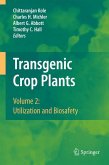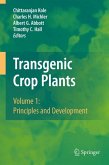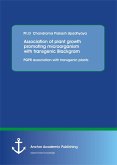Cotton is the most important textile and cash crop and is widely cultivated in more than 70 countries, including the United States, China, and India. Because of its long life cycle and complicated genetic background, it is hard to improve cotton using traditional breeding techniques although it has made much progress in the last several decades. Currently, transgenic techniques have become a powerful tool to improve cotton, and transgenic cotton is among the first commercially genetically modified crops. Transgenic Cotton: Methods and Protocols provides a comprehensive collection of methods for creating and monitoring transgenic cotton and its application on agricultural and basic research. Divided into five convenient sections, topics covered include the current status and perspectives of transgenic cotton, the principle and methods for making transgenic cotton, the methods for detecting foreign gene copy and expression in transgenic plants, the improvement of cotton using transgenic technology, and finally the methods for monitoring the potential impact of transgenic cotton on the environment, including gene flow. Written in the successful Methods in Molecular Biology(TM) series format, chapters include introductions to their respective topics, lists of the necessary materials and reagents, step-by-step, readily reproducible protocols, and notes on troubleshooting and avoiding known pitfalls.
Authoritative and easily accessible, Transgenic Cotton: Methods and Protocols will serve as an excellent resource for scientists as well as graduate students who work on transgenic plants, plant genetics, molecular biology and agricultural sciences.
Dieser Download kann aus rechtlichen Gründen nur mit Rechnungsadresse in A, B, BG, CY, CZ, D, DK, EW, E, FIN, F, GR, HR, H, IRL, I, LT, L, LR, M, NL, PL, P, R, S, SLO, SK ausgeliefert werden.









